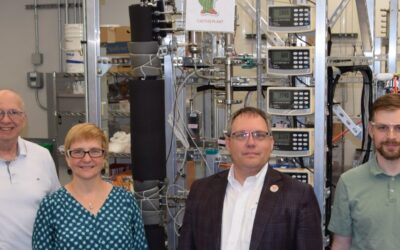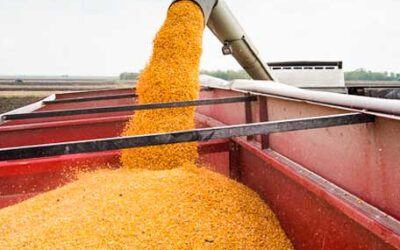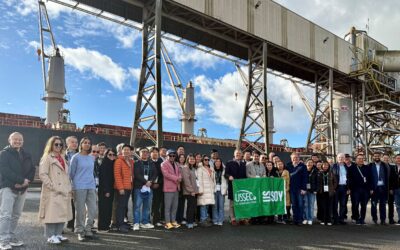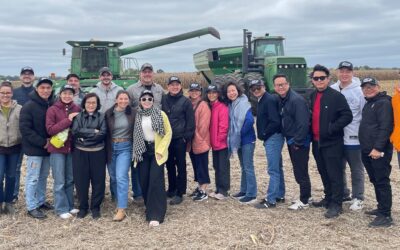Indiana soybean, corn checkoffs developing new global markets
BY DAVE BLOWER JR
The process of farming corn, soybeans and other commodities is often seasonal. There is a season for planting, a season for cultivating and a season for harvesting – among others. Often these seasons are determined by the weather or timing.
Marketing those commodities, though, is more about relationships. Going to meet buyers around the world or hosting those buyers on an Indiana farm is often the final step in securing new customers for the soybeans and corn grown in this state. Taking the time to travel or preparing to host a foreign trade group is usually profitable and worth the time and effort.
In recent months, Indiana corn and soybean checkoff staff and farmer-leaders have traveled to Asia
and South America to create new markets. Indiana Soybean Alliance (ISA) board member Mike Koehne,
a farmer from Greensburg, Ind., took time out of harvest to meet potential trade partners in Vietnam and Thailand. At about the same time, Indiana Corn Marketing Council (ICMC) board member Tim Gauck, also a farmer from Greensburg, Ind., hosted trade teams from Vietnam.
“If you don’t go anywhere or if you don’t meet anyone from anywhere else, then the world can seem like a small place,” Gauck said. “When you meet people from other places, you tend to see the world through their eyes. That gives you a new perspective. It changes the way you see your own farm. We love to share what we do with foreign visitors – we’re proud of the work we do. But we also learn a lot from our visitors. Relationships and breaking down obstacles are essential to creating new markets.”
In mid-October, ICMC board member David Ring, a farmer from rural Dubois County, Ind., hosted farmers from Mexico who were interested in seeing his turkey production facilities as well as his row crops. “The language barrier is something that is quickly overcome,” Ring said. “The bottom line is sharing what we know with people who are interested in learning.”
Southeast Asia-U.S. ag conference
Food stability, security and sustainability were on the minds of more than 300 industry participants who
gathered at Together in Trade, the 2022 Southeast Asia U.S. Agricultural Co-operators Conference in Bangkok, Thailand, in September. Jointly organized by USSEC and USGC, with support from the soy checkoff, the event tackled trade topics through conversations, panel discussions and networking.
Market prices for corn, soybeans and wheat remain a top concern. USSEC CEO Jim Sutter said COVID climate change and conflict largely contribute to volatility and price surges. He noted those factors are also setting the pace for sustainability and sustainable practices for global agriculture and agribusiness.
Sustainability was a recurring theme throughout, with the need for sustainability to underpin the future of food production and feed more people with fewer resources resonating across audiences.
As sustainability is becoming increasingly critical and a passport for businesses to operate, certifications have proven valuable in stemming the challenge of “green-washing.” Certifications provide consumers with greater confidence that the products they are consuming are truly contributing to the sustainable development of the planet.
While sustainability remains crucial, the value of addressing nuances related to starting sustainable farming practices was also discussed. Dr. Scott Hutchins, Sustainability and Value Creation Consultant for ICMC and ISA, said economic sustainability must be clear when considering new practices.
“Farmers can’t think green if they’re in the red,” Hutchins said. “We have to make sure it’s viable for both the small and large farms, and ensure we design these systems to be more efficient and effective.”
Posted: December 6, 2022
Category: Indiana Corn and Soybean Post - Holiday 2022, ISA




